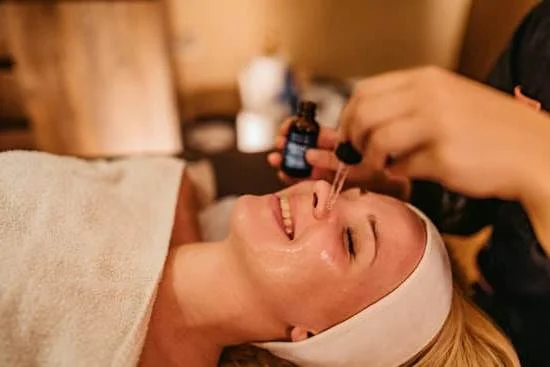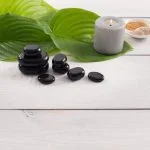Aromatherapy has been recognized for centuries as a natural and holistic approach to well-being, harnessing the therapeutic properties of essential oils. In this article, we will delve into the world of aromatherapy, specifically focusing on the wonders of lemongrass aromatherapy.
Lemongrass, with its fresh and invigorating scent, has long been cherished for its multitude of physical, mental, and emotional benefits. Let us explore the origins and uses of lemongrass, its historical significance, as well as its potential in promoting overall health and vitality.
Lemongrass, scientifically known as Cymbopogon citratus, is a tropical grass native to certain regions in Asia, such as India and Sri Lanka. Its distinct citrusy aroma makes it a popular ingredient in various culinary dishes and beverages. However, it is not just its flavorful essence that makes lemongrass sought after; its essential oil possesses unique characteristics that have made it a staple in aromatherapy practices.
Historically speaking, lemongrass aromatherapy has roots that date back centuries. In ancient cultures across Asia and Africa, this fragrant grass was highly valued for its medicinal properties. It was used in traditional medicine systems like Ayurveda to alleviate digestive issues, reduce fevers, treat skin conditions, and even repel insects. Today, lemongrass essential oil continues to be praised for these same healing qualities while also offering an array of physical benefits that will be explored further in this article.
By utilizing lemongrass essential oil through aromatherapy techniques such as diffusion or topical applications with carrier oils or lotions, individuals can tap into the vast advantages it offers for their physical health and well-being. From antimicrobial properties to pain-relieving effects and reducing inflammation within the body – lemongrass aromatherapy stands as a powerful tool on the path to achieving optimal physical wellness.
However, the benefits do not stop there; this aromatic therapy also holds promising potential in positively impacting mental and emotional health, enhancing concentration and focus, while offering significant advantages in skincare and haircare regimes. Stay tuned to discover the full range of benefits lemongrass aromatherapy can provide as we delve deeper into these areas throughout this article.
Understanding Lemongrass
Lemongrass, scientifically known as Cymbopogon citratus, is a popular herb widely used for its distinct citrusy fragrance and various medicinal properties. It is native to tropical regions such as Southeast Asia, Africa, and Australia. In culinary practices, lemongrass adds a unique flavor to dishes and beverages. However, it is also highly valued in aromatherapy for its therapeutic benefits.
In aromatherapy, lemongrass essential oil is obtained through steam distillation of the plant’s leaves and stems. This process extracts the potent compounds that give lemongrass its distinctive aroma and therapeutic effects. Lemongrass oil is often pale yellow or amber in color with a fresh, uplifting scent that is known to enhance mood and mental well-being.
Lemongrass essential oil possesses several key properties that make it beneficial for aromatherapy. It has antimicrobial and antifungal properties that help combat harmful bacteria and fungi in the air. This makes lemongrass aromatherapy an excellent choice for purifying the atmosphere and reducing the risk of airborne infections. Additionally, lemongrass oil contains analgesic compounds which can relieve pain and inflammation when applied topically.
One of the most notable characteristics of lemongrass essential oil is its high content of citral, a natural compound that contributes to its lemon-like scent. Citral has been found to have sedative effects on the central nervous system, helping to reduce stress and anxiety levels. Furthermore, research suggests that inhaling lemongrass essential oil may stimulate the release of serotonin in the brain, promoting feelings of happiness and well-being.
Overall, understanding the botanical origins and unique properties of lemongrass provides a foundation for comprehending its potential benefits in aromatherapy. From its antimicrobial qualities to mental health benefits, lemongrass offers a holistic approach to well-being through its uplifting aroma and therapeutic effects. Incorporating lemongrass aromatherapy into daily routines can enhance both physical and emotional health, promoting a sense of balance and harmony in everyday life.
Historical Significance
The Origins of Lemongrass Aromatherapy
Lemongrass aromatherapy has a rich historical background, deeply rooted in ancient practices and traditional medicine. The use of lemongrass can be traced back to various cultures around the world, including India, Southeast Asia, and Africa. In these regions, lemongrass has been highly regarded for its medicinal properties and spiritual significance.
Cultural Significance and Traditional Medicine
Throughout history, lemongrass has played a vital role in traditional medicine systems across different cultures. For example, in Indian Ayurvedic medicine, lemongrass is used to treat fever, digestive issues, inflammation, and as an overall tonic for the body. It is also believed to have powerful effects on mental clarity and focus.
In Southeast Asia, lemongrass is commonly used in traditional remedies for digestive ailments, respiratory issues, and even as an insect repellent. Its citrusy scent is believed to ward off evil spirits and promote positive energy. Similarly, in African cultures such as Nigeria and Ghana, lemongrass has been utilized for centuries to alleviate pain, reduce nausea and combat fever.
Ancient Practices
The historical significance of lemongrass extends beyond medicinal uses into various ancient practices. Lemongrass was often incorporated into spiritual rituals due to its refreshing scent and uplifting qualities. In some religious ceremonies or purification rites, bundles of lemongrass were burned as incense to cleanse the atmosphere and promote spiritual well-being.
Furthermore, the essential oil extracted from lemongrass has been used in the art of perfumery throughout history. Its bright aroma adds a citrusy note that invigorates the senses while providing a sense of balance and harmony.
Overall, lemongrass aromatherapy holds deep cultural significance and a longstanding history of therapeutic use. Understanding its historical background can provide valuable insights into the many benefits and applications of this aromatic plant.
Physical Benefits
Lemongrass aromatherapy offers a wide range of physical health benefits due to its unique properties and constituents. One of the key benefits is its antimicrobial properties, which make it effective in fighting off various types of bacteria and fungi. Lemongrass essential oil has been found to inhibit the growth of certain strains of bacteria, including those responsible for skin infections and respiratory illnesses.
In addition to its antimicrobial effects, lemongrass aromatherapy also possesses pain-relieving properties. The oil has been used traditionally to alleviate muscle soreness, joint pain, and headaches. Its analgesic effects have been attributed to its ability to reduce inflammation in the body.
The anti-inflammatory properties of lemongrass essential oil make it particularly useful for those suffering from conditions like arthritis or rheumatism. It can help reduce swelling and relieve discomfort associated with these inflammatory conditions. Moreover, lemongrass aromatherapy can also aid in relieving digestive issues such as indigestion, stomach cramps, and bloating.
Overall, incorporating lemongrass aromatherapy into your wellness routine can provide tangible physical benefits for your health. Whether it is fighting off bacteria and fungi, alleviating pain and inflammation, or aiding digestion, this natural remedy offers a holistic approach to improving your physical well-being.
| Physical Benefits | Data |
|---|---|
| Antimicrobial Properties | Effective against various types of bacteria and fungi |
| Pain Relief | Alleviates muscle soreness, joint pain, and headaches |
| Inflammation Reduction | Reduces inflammation associated with arthritis, rheumatism, and digestive issues |
Mental and Emotional Well-being
Lemongrass aromatherapy not only has physical benefits but also positively impacts mental and emotional health. The soothing and uplifting properties of lemongrass essential oil make it an excellent choice for promoting relaxation, reducing stress, and improving overall well-being.
One of the main advantages of lemongrass aromatherapy is its potential to reduce stress and anxiety. The pleasant citrusy aroma of lemongrass can help calm the mind, ease tension, and promote a sense of relaxation. Its sedative properties can induce a deep state of relaxation, helping to alleviate symptoms of anxiety and promote better sleep quality.
In addition to reducing stress and anxiety, lemongrass aromatherapy is known for its mood-boosting effects. The refreshing scent can uplift the spirits, increase mental clarity, and improve focus. Some studies suggest that inhalation of lemongrass essential oil may even help reduce symptoms of depression by promoting positive emotions.
To incorporate lemongrass aromatherapy into your everyday life for mental and emotional well-being, there are several ways you can enjoy its benefits. Diffusing lemongrass essential oil in a diffuser or adding a few drops to a warm bath can create a calming atmosphere that promotes relaxation. You can also apply diluted lemongrass oil topically on pulse points or use it in massage oils to relax both the body and mind.
Overall, lemongrass aromatherapy offers natural support for mental and emotional health. Its therapeutic properties make it an excellent choice for anyone looking to reduce stress, boost mood, and enhance overall well-being in a holistic way.
| Mental Benefits | Emotional Benefits |
|---|---|
| – Reduces stress | – Calms the mind |
| – Alleviates anxiety | – Uplifts the spirits |
| – Improves sleep quality | – Promotes positive emotions |
| – Enhances mental clarity | – Reduces symptoms of depression |
Skin and Hair Care
Lemongrass aromatherapy is not only beneficial for mental and physical health but also has numerous advantages for skin and hair care. Lemongrass essential oil, derived from the lemongrass plant, is known for its exceptional properties that promote healthy skin and hair. Incorporating lemongrass aromatherapy into your skincare and haircare routine can result in improved complexion, balanced oily skin, and enhanced hair growth.
One of the notable benefits of lemongrass aromatherapy for skincare is its effectiveness in treating acne. The antimicrobial properties of lemongrass essential oil help combat the bacteria that cause acne breakouts. By incorporating a few drops of lemongrass essential oil into your facial cleanser or moisturizer, you can reduce inflammation and prevent new acne formations. Additionally, lemongrass aromatherapy helps balance oily skin by controlling sebum production, resulting in a smoother and less greasy complexion.
In addition to benefiting the skin, lemongrass aromatherapy offers advantages for hair care as well. If you struggle with hair loss or slow hair growth, incorporating lemongrass essential oil into your haircare routine may be beneficial.
Known for its stimulating properties, lemongrass essential oil encourages blood flow to the scalp, promoting healthy hair follicles and enhancing hair growth. By adding a few drops of lemongrass essential oil to your shampoo or mixing it with a carrier oil for scalp massage, you can nourish your scalp and support strong, vibrant hair.
Overall, incorporating lemongrass aromatherapy into your skincare and haircare routine can provide significant benefits. From improving acne-prone skin to supporting healthy hair growth, lemongrass essential oil offers natural solutions for maintaining radiant skin and luscious locks. Experimenting with different DIY recipes using lemongrass essential oil can help you discover what works best for your individual skin and hair needs.
Enhancing Concentration and Focus
For those seeking to improve their concentration and focus, lemongrass aromatherapy can be a valuable tool. The fresh, citrusy scent of lemongrass has been found to have stimulating properties that can sharpen the mind and increase mental clarity. This section will explore how lemongrass aromatherapy can enhance concentration and focus, as well as provide tips on incorporating it into study or work routines.
The Power of Aromatherapy for Concentration
Aromatherapy works by stimulating the limbic system in our brain, which is responsible for regulating emotions, memory, and motivation. When we inhale the aroma of lemongrass essential oil, it activates our olfactory senses and triggers positive responses in the brain. This can lead to improved cognitive function, increased alertness, and enhanced ability to concentrate.
Research has shown that certain compounds present in lemongrass essential oil, such as citral and limonene, have neuroprotective effects that promote mental clarity and reduce mental fatigue. Additionally, the refreshing scent of lemongrass can help uplift mood and provide a sense of invigoration, further enhancing concentration and focus.
Incorporating Lemongrass Aromatherapy into Daily Routines
There are various ways to incorporate lemongrass aromatherapy into your daily routines to enhance concentration and focus. One simple method is using a diffuser to disperse the scent of lemongrass essential oil throughout your workspace or study area. Alternatively, you can add a few drops of the oil onto a tissue or handkerchief and keep it nearby while you work or study.
Another effective way to reap the benefits of lemongrass aromatherapy is through massage oils or body lotions. By mixing lemongrass essential oil with a carrier oil, such as sweet almond or jojoba oil, you can create a stimulating massage blend that can improve blood circulation and mental clarity.
Lastly, incorporating lemongrass aromatherapy into your bath routine can provide a soothing and invigorating experience. Add a few drops of lemongrass essential oil to your bathwater and allow the aroma to envelop you while you relax. This can help clear your mind, minimize distractions, and enhance your ability to concentrate on the task at hand.
By harnessing the power of lemongrass aromatherapy for concentration and focus, individuals can enjoy increased productivity and improved mental performance in their daily lives. Experiment with different methods of incorporating lemongrass aromatherapy into your routines to find what works best for you.
DIY Recipes
One of the most exciting aspects of lemongrass aromatherapy is the ability to create your own DIY recipes using lemongrass essential oil. Whether you’re looking to improve your mood, enhance your skincare routine, or simply enjoy the refreshing aroma, there are endless possibilities for incorporating lemongrass into your daily life. Here are a few easy and creative DIY recipes to get you started:
- Diffuser Blends: Create a calming atmosphere in your home by mixing lemongrass essential oil with other compatible oils like lavender or bergamot. Simply add a few drops of each oil to a diffuser filled with water and let the aroma fill the room.
- Massage Oil: Indulge in a soothing massage with a homemade lemongrass massage oil. Combine 1/4 cup of carrier oil (such as coconut or jojoba) with 10-15 drops of lemongrass essential oil in a small bottle. Shake well before each use and massage it into your skin for relaxation and muscle relief.
- Bath Bombs: Elevate your bath time experience by making lemongrass-scented bath bombs. In a large bowl, mix together 1 cup of baking soda, 1/2 cup of citric acid, 1/2 cup of Epsom salt, and 10 drops of lemongrass essential oil. Slowly add water while stirring until the mixture holds its shape when squeezed together. Press the mixture into molds, let them dry overnight, and voila. You have luxurious lemongrass bath bombs to enjoy.
- Homemade Room Spray: Freshen up any space with a homemade lemongrass room spray. In a spray bottle filled with water, add 15-20 drops of lemongrass essential oil and shake well before each use. Spritz the air or linens to instantly uplift the ambiance with a refreshing scent.
- Facial Steam: Treat your skin to a nourishing lemongrass facial steam. Boil a pot of water, remove from heat, and add 3-4 drops of lemongrass essential oil to the hot water. Create a tent over your head with a towel and lean over the pot, allowing the steam to open up your pores and rejuvenate your skin.
Remember, when creating DIY recipes using lemongrass essential oil, always start with a small amount and adjust as per your preference. It’s also important to ensure you are using 100% pure and high-quality essential oils for maximum therapeutic benefits. Enjoy the process of experimenting with different recipes and discovering how lemongrass aromatherapy can enhance various aspects of your life.
Precautions and Tips
While lemongrass aromatherapy offers a range of therapeutic benefits, it is important to use it safely and responsibly. Here are some precautions and tips to keep in mind when using lemongrass essential oil for aromatherapy:
- Dilution: Lemongrass essential oil is highly concentrated and should always be diluted before use. Avoid applying undiluted oil directly onto the skin, as it may cause irritation or sensitivity. Mix a few drops of lemongrass essential oil with a carrier oil, such as coconut or almond oil, before applying it to the skin.
- Allergies: Individuals with known allergies to grasses or citrus fruits may have a higher risk of developing an allergic reaction to lemongrass essential oil. It is recommended to perform a patch test before using lemongrass aromatherapy extensively on the skin.
- Sensitivity: Some individuals may have increased sensitivity to lemongrass essential oil. If any discomfort or irritation occurs after using lemongrass aromatherapy, discontinue use immediately. It is always advisable to consult with a healthcare professional before using any new aromatherapy product, especially if you have sensitive skin or existing medical conditions.
- Pregnancy and breastfeeding: Pregnant women and breastfeeding mothers should exercise caution when using lemongrass essential oil. While there is limited research on its safety during pregnancy and breastfeeding, it is generally recommended to consult with a healthcare professional before incorporating lemongrass aromatherapy into their routine.
- Photosensitivity: Lemongrass essential oil contains certain compounds that can increase photosensitivity in some individuals. To prevent skin irritation or sunburn, avoid direct sunlight or UV exposure for at least 12 hours after using products containing lemongrass essential oil.
- Storage: Store lemongrass essential oil in a cool, dark place away from direct sunlight and heat. Proper storage will help maintain the quality and potency of the oil for a longer period.
Remember to always follow the instructions provided by the manufacturer when using lemongrass essential oil for aromatherapy. It is also wise to conduct thorough research or consult with a certified aromatherapist for personalized guidance based on your specific needs and circumstances. By taking these precautions and tips into consideration, you can safely enjoy the benefits of lemongrass aromatherapy while minimizing any potential risks.
Conclusion
In conclusion, lemongrass aromatherapy offers a wide range of physical, mental, and emotional benefits. Its antimicrobial properties and ability to reduce inflammation make it an excellent choice for supporting physical health. Additionally, lemongrass aromatherapy has the potential to reduce stress and anxiety, boost mood, and enhance overall well-being for mental and emotional wellness.
Furthermore, lemongrass aromatherapy has proven effective in skincare and haircare routines due to its ability to improve acne, balance oily skin, and promote healthy hair growth. For those seeking to enhance concentration and focus during study or work routines, incorporating lemongrass aromatherapy can provide the desired benefits.
For individuals interested in exploring the world of lemongrass aromatherapy, there are numerous DIY recipes available for diffuser blends, massage oils, bath bombs, and more. These recipes allow for a personalized approach to incorporating lemongrass essential oil into daily routines.
However, it is important to exercise caution when using lemongrass essential oil. Precautions include avoiding use during pregnancy or breastfeeding and conducting a patch test before applying topically. It is also important to store the oil properly to maintain its potency.
Overall, lemongrass aromatherapy provides a natural and holistic approach to well-being. By incorporating this versatile essential oil into their lives, individuals can experience the numerous benefits it offers for both physical and mental health. So why not give it a try? Start your journey with lemongrass aromatherapy today and discover its transformative effects on your well-being.
Frequently Asked Questions
Does lemongrass have a calming effect?
Lemongrass is commonly believed to have a calming effect on the body and mind. It is often used in aromatherapy and massage therapy for its soothing properties. The fragrance of lemongrass is known to promote relaxation and reduce stress levels.
Additionally, some studies suggest that certain compounds found in lemongrass may have anxiolytic effects, meaning they can help alleviate anxiety symptoms. While more research is needed to fully understand the extent of lemongrass’ calming effects, many people find its aroma and properties beneficial for promoting a sense of tranquility.
What does lemongrass do to the brain?
The active compounds present in lemongrass can have various effects on the brain. For instance, citral, one of the main components of lemongrass oil, has been reported to possess neuroprotective properties which may help protect against certain neurological disorders.
Additionally, studies have indicated that other compounds found in lemongrass may exhibit anti-inflammatory and antioxidant activities that could potentially benefit brain health. In particular, these properties might contribute to reducing oxidative stress and inflammation in the brain, which are factors associated with neurodegenerative diseases.
What is lemongrass used for spiritually?
Lemongrass holds spiritual significance in various cultures around the world. It is commonly used in different spiritual practices for its perceived cleansing and purifying qualities. In certain spiritual traditions, it is believed that burning or smudging dried lemongrass can remove negative energies and promote positive vibrations within a space or an individual’s aura.
Some individuals also incorporate lemongrass into meditation or rituals as a way to enhance focus, clarity, and intention-setting. Its fresh aroma is often associated with mental clarity and uplifting energy, making it a popular choice for those seeking heightened spiritual experiences or wanting to create sacred environments during practices such as yoga or meditation sessions.

Are you looking for a natural way to improve your health and wellbeing?
If so, aromatherapy may be the answer for you.





